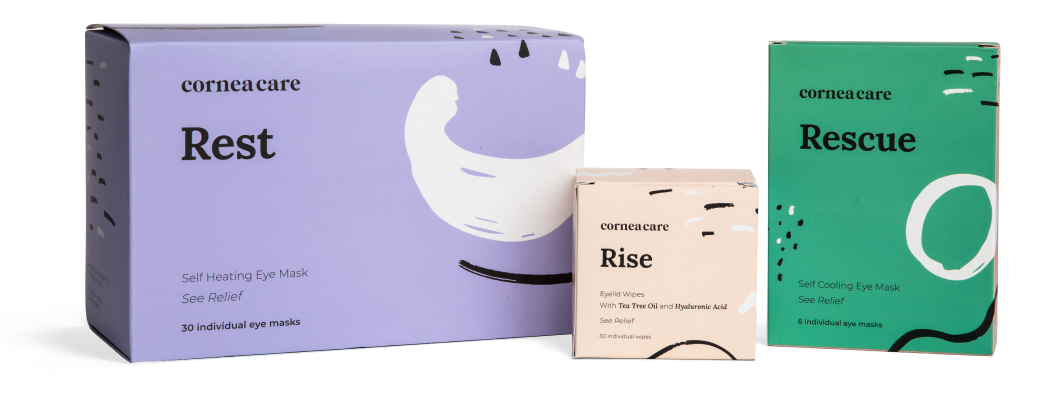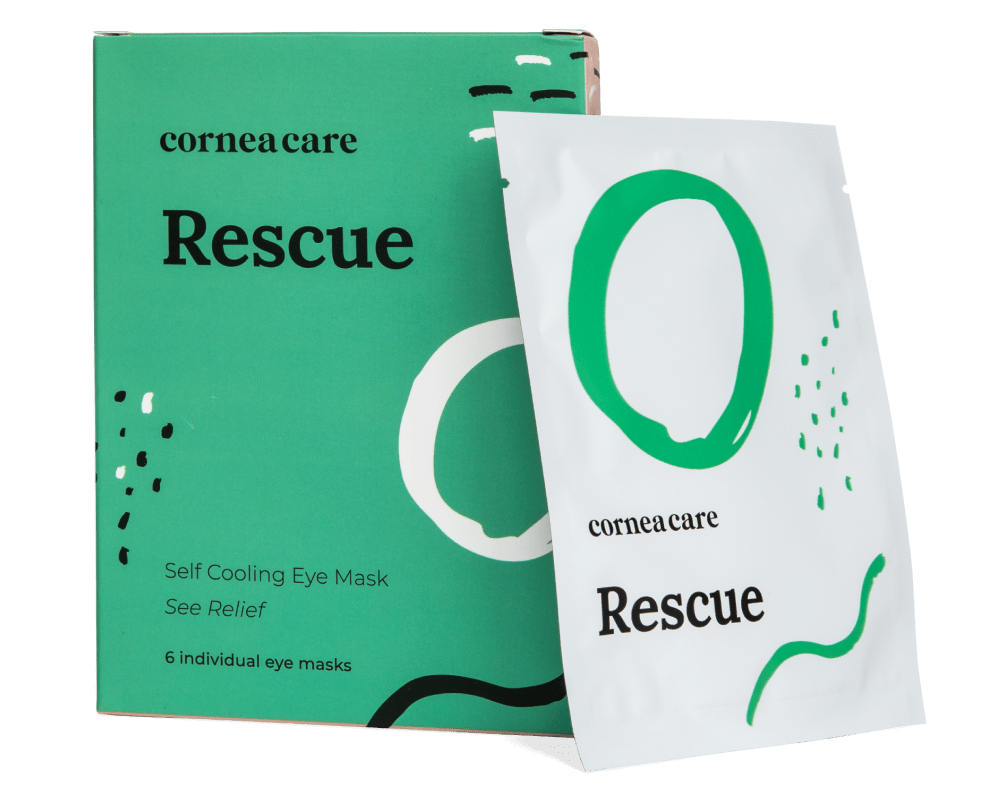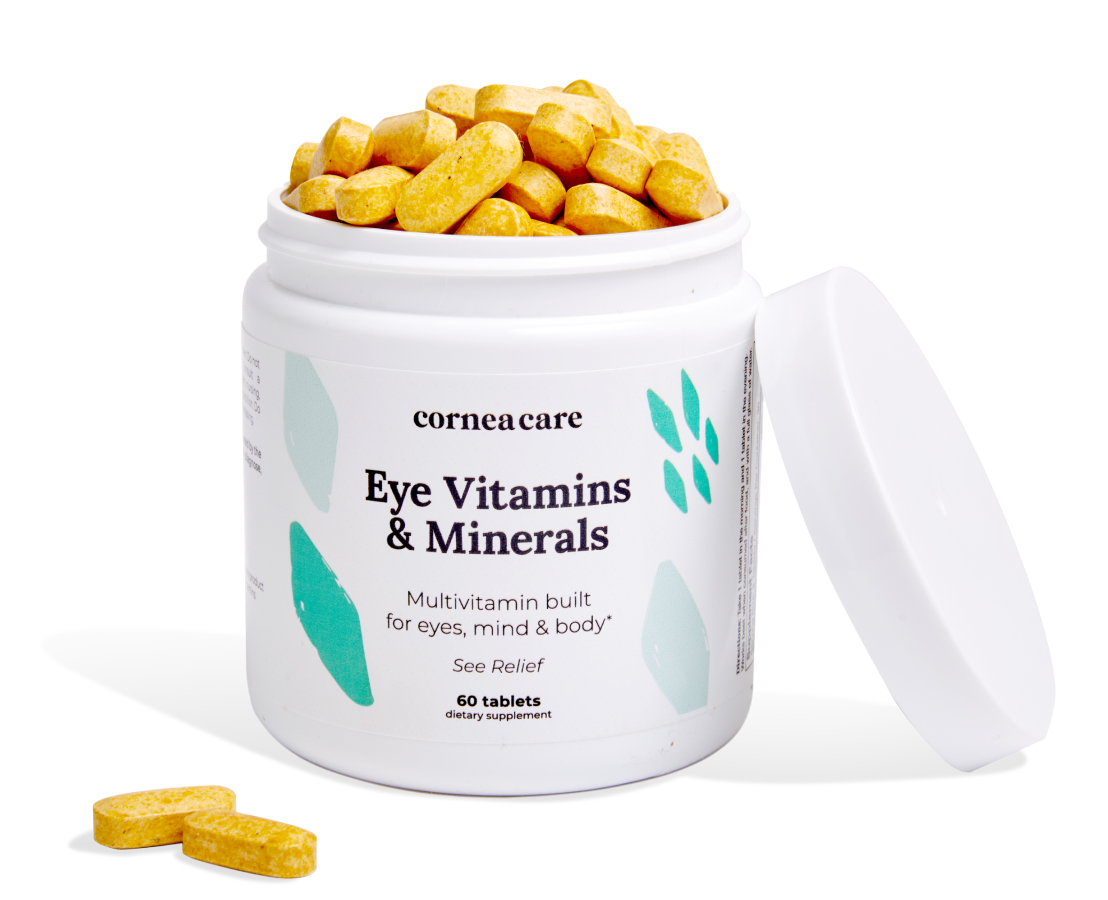How Do I Lighten My Eye Color?
Have you ever looked in the mirror and wondered if your eye color could be changed? Maybe you’ve dreamed of having blue eyes instead of brown or perhaps you’ve heard about different methods that claim to lighten the color of your eyes.
Let’s dive into the facts, from the science behind eye color to the safety and effectiveness of various methods, all while keeping your eye health in mind.
Key Points
- Your unique eye color is determined by genetics and the amount of melanin in your iris, and it typically remains stable throughout your life.1
- Although there are methods marketed to change eye color, most are unsafe and carry significant risks to your vision and eye health.2
- The safest way to experiment with different eye colors is through FDA-approved colored contact lenses, with proper eye care being essential to avoid complications.3
Understanding Eye Color
Your eye color is determined by the amount and type of pigment, called melanin, in the iris, which is the colored part of the eye. Melanin is the same pigment responsible for your skin and hair color.1
The amount of melanin in your iris determines your eye color: more melanin results in darker eyes, so brown-eyed people have more melanin, while those with blue or green eyes have less. Hazel eyes typically feature a mix of melanin levels, giving them a distinctive, multicolored look.1
The color of your eyes is largely determined by genetics, and it’s a trait that remains stable throughout your life. However, there are some exceptions where eyes change color, either gradually over time or suddenly due to certain medical conditions.
Can Eye Color Really Change?
While it’s not common, the color of your eyes can change due to various factors, most of which are related to changes in the amount or distribution of melanin in the iris. For instance, some babies are born with blue or gray eyes that darken as they age because melanin production increases.1
But what about adults? Can your eyes change color naturally?
The color of your eyes can appear different based on your clothes, eye makeup, and even the time of day. Certain shades of eye shadow or clothing can make blue eyes look brighter, green eyes appear more vivid, or brown eyes take on a warmer hue.
Natural sunlight might bring out different tones in your eyes compared to indoor lighting. While these effects are temporary and based on external factors, they show how versatile and unique your eye color can be without any permanent changes.
Medical conditions that can cause eye color change
In most cases, any lasting change in eye color during adulthood is linked to underlying medical conditions, such as:4
- Pigment dispersion syndrome and pigmentary glaucoma: Pigment dispersion syndrome involves pigment granules from the iris accumulating in the eye’s drainage system, which can lead to increased intraocular pressure and develop into pigmentary glaucoma, a type of glaucoma that may cause changes in eye color.
- Horner’s syndrome: A rare condition affecting the nerves of the face and eyes, often resulting in lighter colored eyes on the affected side.
- Fuchs’ heterochromic iridocyclitis: A form of uveitis that can cause one eye to become lighter over time due to the loss of pigment.
- Heterochromia: A condition where each eye is a different color, which can be congenital or acquired due to injury or disease.

All Rounder
Eyelid Hygiene Plan 3
Perfect for eye dryness, burning, itching, grittiness, crusting/flaking of eyelashes and inflamed/swollen eyelids. Free shipping 📦.
Try today - $60
Changes to the white of your eyes
The white part of your eye, known as the sclera, can change color due to various factors such as age, health conditions, or lifestyle choices. For instance, a yellowing sclera may indicate jaundice, often related to liver issues, while a reddened sclera can result from irritation, dryness, or infection.5
If you notice a sudden change in the color of your eyes, iris or sclera, it’s crucial to consult an eye doctor as it could be a sign of an underlying issue that requires prompt attention.
Methods to Lighten Eye Color
If you’ve seen claims on social media about ways to lighten your eye color, here’s a closer look at the common methods and their scientific validity:
Eye drops
Some eye drops, particularly those with prostaglandin analogs, have been reported to change eye color. These drops, often prescribed for glaucoma, can darken lighter eye colors like blue or green rather than lighten them. This is due to increased melanin production, making these drops unreliable and unsafe for lightening eye color.
Iris implant surgery
Iris implant surgery is marketed as a permanent way to change eye color by placing a colored silicone implant over the iris. However, it carries significant risks, including vision loss, corneal damage, uveitis, and glaucoma. Most eye doctors advise against this procedure for cosmetic purposes due to these severe risks.6
Keratopigmentation
Keratopigmentation involves tattooing the cornea to alter eye color. While it can create a lighter appearance, it is still experimental and carries risks such as infection, dry eye, and vision impairment. It is not FDA-approved for cosmetic use, and ophthalmologists generally caution against it.6
Laser depigmentation
Laser depigmentation aims to lighten eye color by using lasers to reduce melanin in the iris. This method is experimental and carries significant risks, including potential vision impairment and long-term damage. It lacks widespread practice and FDA approval, making it a risky and largely unadvised option.6
Colored contact lenses
Colored contact lenses are the safest option for a temporary eye color change. Available in various shades, they offer a reversible way to alter your eye color. However, they should be fitted by an optometrist to prevent complications like corneal infections or damage. Always use a prescription to ensure proper fit and safety.3

Rescue
Cold Compresses
Perfect for sudden flare-ups of eye dryness, pain, burning, and swollen/inflamed eyelids. Free shipping 📦.
Try today - $12
The Risks of Trying to Lighten Your Eye Color
Attempting to change the color of your eyes through unproven or unsafe methods can lead to severe consequences. Vision loss, glaucoma, and damage to the cornea are just a few of the risks associated with procedures like iris implant surgery or the misuse of eye drops.6
Additionally, altering the color of the iris can disrupt the natural balance of melanin, leading to pigment dispersion syndrome or even pigmentary glaucoma. Both conditions can seriously affect your vision and eye health.6
Embracing Your Natural Eye Color
While the idea of lightening your eye color may seem appealing, it’s essential to consider the potential risks and weigh them against the desire for a different color. The safest way to experiment with eye color is through non-invasive methods like FDA-approved colored contact lenses, but even then, proper eye care is vital.
Why proper eye care matters
Your eyes are incredibly delicate organs, and maintaining their health is crucial for your overall well-being. Whether you’re thinking about using colored contact lenses or just want to keep your eyes in top shape, good eye care practices can make a significant difference.
Take care of your precious eyes with these tips:7
- Regular eye exams: Schedule regular visits to your optometrist or ophthalmologist to monitor your eye health.
- Proper use of contact lenses: If you wear corrective or colored contact lenses, always get them fitted by a qualified eye doctor and follow care instructions meticulously.
- Good eyelid hygiene: Keep your eyelids clean, especially if you wear makeup or have conditions like blepharitis. Gently cleanse your eyelids daily with CorneaCare eyelid wipes to remove debris and bacteria.
- Protect your eyes: Wear sunglasses with 100% UV protection when outdoors and use appropriate eye protection during activities that pose risks to your eyes.
- Stay hydrated: Drink plenty of water to prevent dry eye, which can cause discomfort and increase infection risk.
- Healthy diet: Eat a balanced diet rich in vitamins and minerals to support overall eye health.
- Rest your eyes: Give your eyes regular breaks from screens and intense visual tasks to reduce strain and fatigue. Apply CorneaCare cool or warm compresses to soothe tired eyes, reduce puffiness, and alleviate dryness.

Multivitamin
Eye Vitamins & Minerals
A single multivitamin to address the nutritional needs of your eyes, mind and body. 📦 Free shipping.
Try today - $35
How to Lighten Eye Color FAQ
Can you make your eyes look lighter?
While you can’t permanently lighten your eye color, you can make your eyes appear lighter with colored contact lenses. These lenses come in various shades, including lighter tones of blue, green, and hazel, allowing you to change the appearance of your eye color. However, it’s important to have them properly fitted by an eye doctor to avoid risks like irritation or infection.
What foods lighten eye color?
No foods can lighten your eye color. The color of your eyes is determined by genetics and the amount of melanin in your iris, and no diet can change that. While a healthy diet is great for overall eye health, it won’t alter the natural color of your eyes.
Are there drops to lighten eye color?
There aren’t any safe, FDA-approved drops designed to lighten eye color. Some prescription eye drops used for treating glaucoma can darken eye color over time, but nothing is available or recommended to make your eyes lighter. If you’re considering any eye treatments, it’s best to consult with an eye doctor.
Putting It All Together
While it’s tempting to change your appearance, it’s important to appreciate the unique beauty of your natural eye color. Whether your eyes are blue, green, brown, or hazel, they are a reflection of your genetics and a distinctive part of who you are.
By focusing on good eye care and embracing your natural eye color, you’re not only protecting your vision but also celebrating what makes you unique.
If you’re considering any cosmetic changes or have concerns about your eye color, make sure to consult with a trusted eye doctor who can guide you on the safest and most appropriate options.
What’s Next
Keep your eyes healthy for life! Learn more on the Eye Health & Wellness blog.



